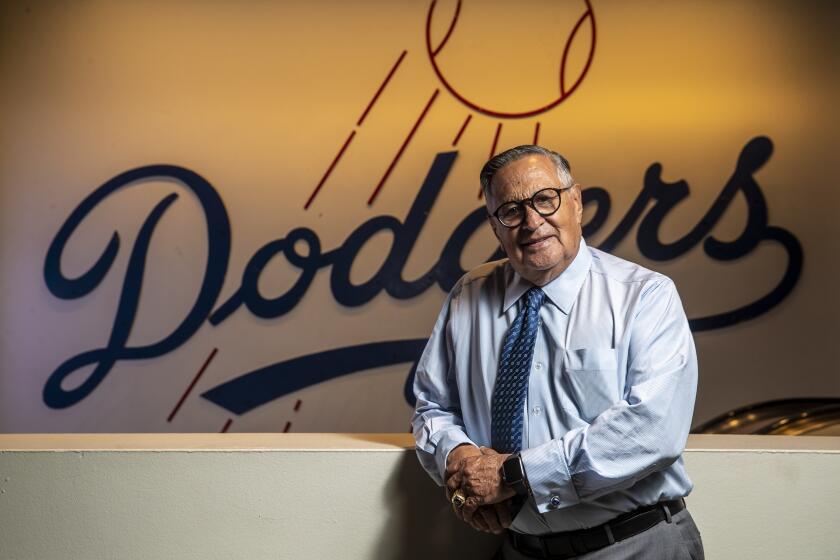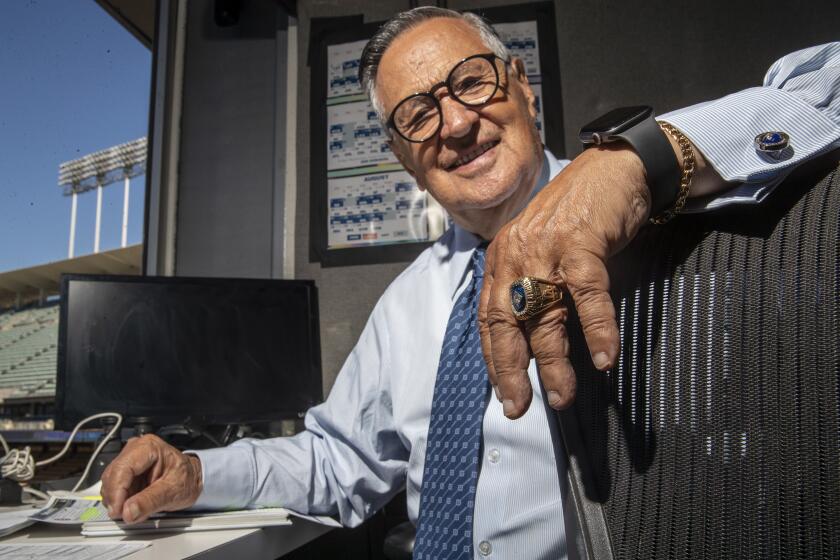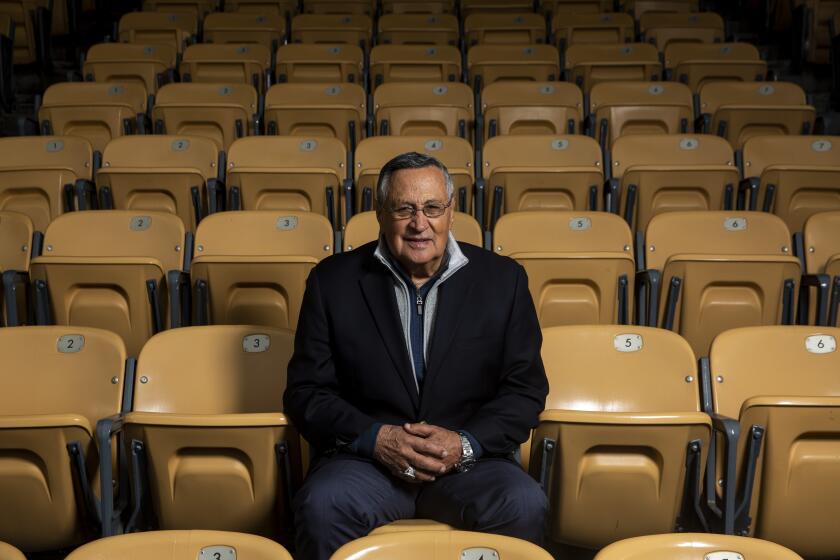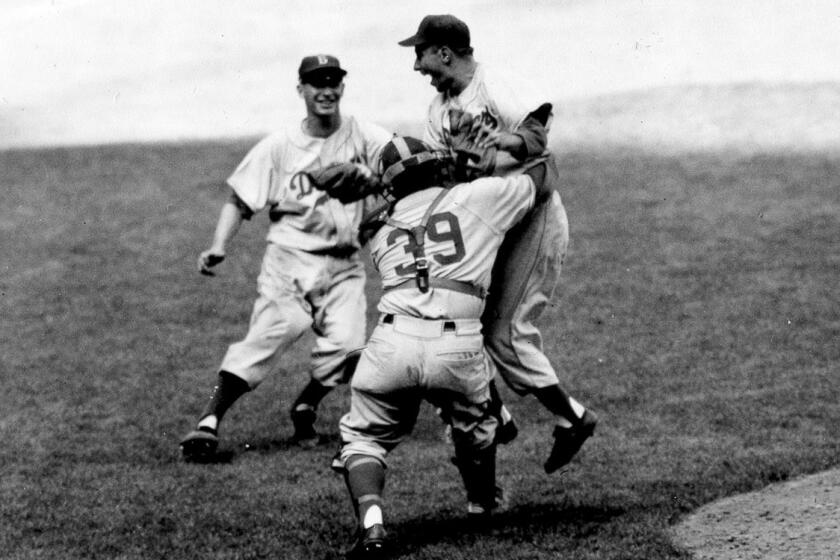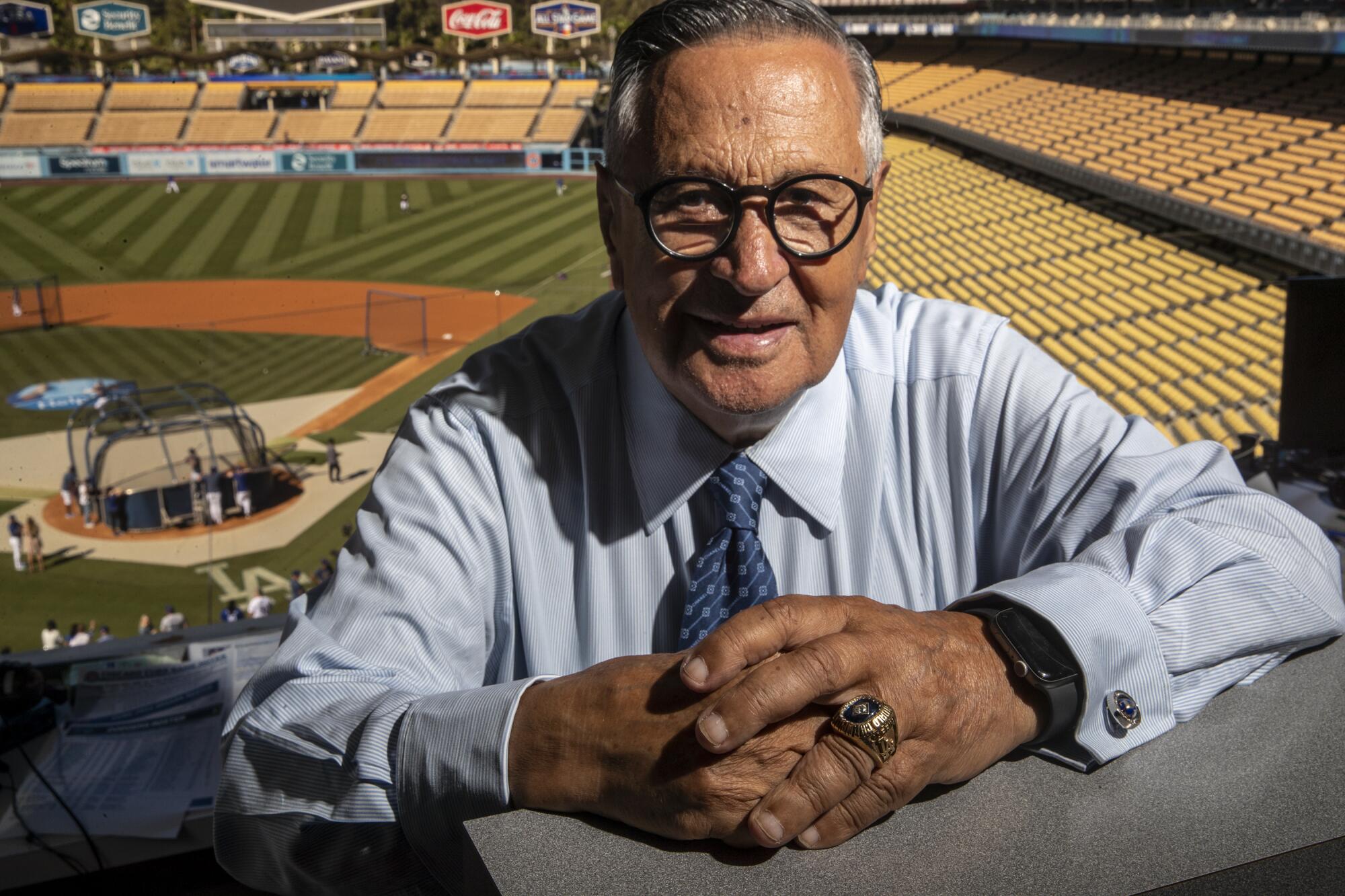
Jaime Jarrín was always around.
Long before I knew him personally, or even before I knew his primary occupation, I’d see him at halftime of the soccer games I watched on television.
I’d hear his voice when my great grandmother’s favorite Mexican soap opera went to commercial.
“Seis, treinta y seis, treinta y seis, treinta y seis.”
Six, thirty-six, thirty-six, thirty-six — the most famous phone number in Los Angeles.
The attorney network Los Defensores’ commercials have been omnipresent on Spanish-language television in Southern California for the last four decades, and this is how many of us were introduced to Jarrín, who will retire as the Spanish voice of the Dodgers at the end of this season.
Dodgers Spanish-language radio voice Jaime Jarrín shares career memories that include World Series wins, hostage negotiations and iconic endorsements.
The television spots often started with an actor talking about how he was injured in a car or workplace accident, after which Jarrín informed viewers Spanish-speaking lawyers were available to help.
His baritone voice was strong but welcoming. He was well-spoken and impeccably dressed. He stood tall and proud. There was an unmistakable dignity about him.
When I made his acquaintance years later, I found that Jarrín carried himself exactly how he did in those commercials. And from what the late Vin Scully told me, Jarrín had been carrying himself like that since he started calling Dodgers games in 1959.
His story is a rags-to-riches immigrant’s story, as he came from Ecuador with $40 in his pocket and worked at an Alameda Street factory before landing a job at a local radio station.
But there’s another part of Jarrín’s immigrant experience that is less recognized, about the burdens he placed on himself as one of only a handful of minorities in his workplace.
During the eight seasons I was the Dodgers’ beat writer, Jarrín and I periodically met for lunch or dinner on the road. He often spoke about the responsibilities we had to our community. He pointed out that we were the only Latinos many of our press box colleagues ever spoke to, and, therefore, how we presented ourselves would shape how they viewed others with our cultural backgrounds.
Shortly after I was hired by The Times, the late ESPN reporter Pedro Gomez told me, “Don’t f— this up for us.” Jarrín was emphasizing that point, only in more romantic language.
Legendary Spanish broadcaster Jaime Jarrín, who is retiring after this season, offers up his top Dodgers moments since they came to Los Angeles.
Jarrín shared these thoughts again last week in a conversation with Times reporter Jorge Castillo.
“We’re in this country, we’re immigrants, so we need to do things well so the immigrant name isn’t stained and they appreciate us,” Jarrín said in Spanish.
I always felt overwhelmed by such talk. Honestly, I was working just to get paid every other Friday. Plus, I had a Japanese mother. Was this really on me?
Of course, the luxury of asking myself that question was gifted to me by Jarrín and others who existed in largely white spaces in times when minorities were limited in career choices.
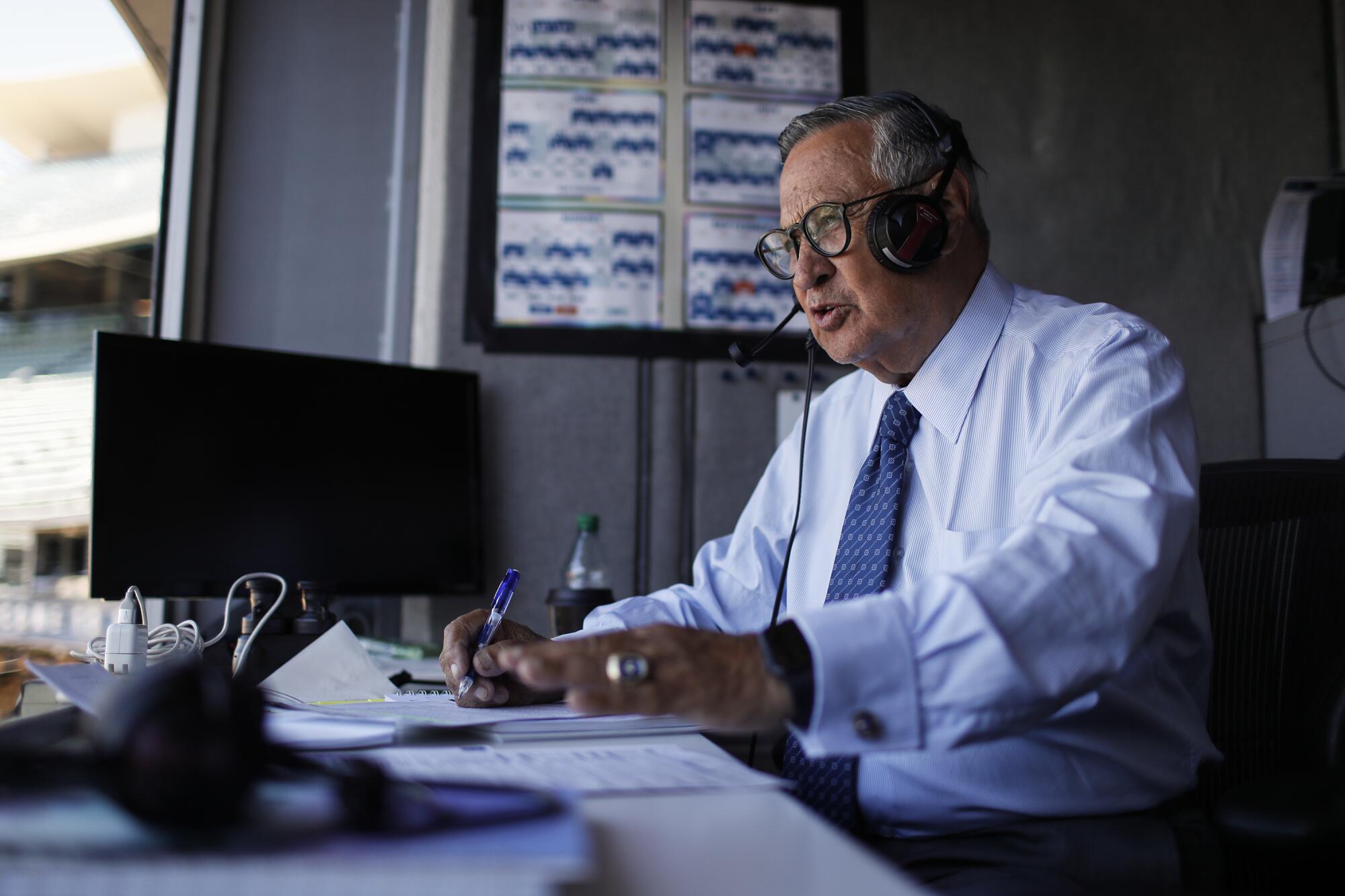
Baseball press boxes of 15 years ago were places where there were still whispers about “minority hires.” I have no way of proving this, but I imagine how Jarrín and others like him conducted themselves made certain workplaces more welcoming environments for those of us who followed.
How could that not have been the case? To everyone in Jarrín’s orbit, the classiest person they knew was a Latino.
Jarrín maintained this grace through the years when many ballparks had only two radio booths — one for the home team’s English-language broadcast, the other for the away team’s — and forced him to call games while seated next to stadium loudspeakers or with obstructed views.
When Los Angeles Dodgers Spanish-language broadcaster Jaime Jarrín announced this week that he would retire in 2022 after a 64-year career, the first thing Jose de Jesus Ortiz did was look through his phone.
He remained dignified as he endured personal turmoil and tragedy, from his four-month hospital stay after surviving a near-fatal car accident to the deaths of his wife and middle son.
This was his nature, but he also saw this as his duty.
Today, the press box at Dodger Stadium is much different than it was when Jarrín started. Over the last decade in particular, media outlets have made concerted efforts to hire reporters who speak the languages of the players they cover. I don’t think any of these reporters found the working environment any more or less intimidating than their white counterparts.
Jarrín had already established the place was as much theirs as anyone else’s.
More to Read
Are you a true-blue fan?
Get our Dodgers Dugout newsletter for insights, news and much more.
You may occasionally receive promotional content from the Los Angeles Times.

